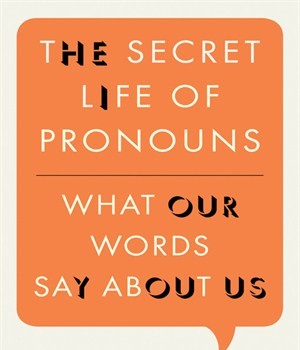Think of your organisation as a dress shop. Now, why are you in business?
Are you out there to sell clothes? Run a supply chain? Or to simply deliver a return to shareholders?
All three are essential but don’t explain why my shop is different from yours.
Or, why an investor will give me money, rather than you.
Or, why an employee will shine in the service of my product, but not yours.
Or, why my customer will keep coming back, but not yours.
What’s missing in your organization might be purpose – the higher pursuit that truly inspires employees and excites customers. Without it we can’t expect innovation, employee engagement, price premiums or customer loyalty.
We try to fix these things by articulating our mission, vision, values and strategies. If these are so easy, why do they stay in a PowerPoint presentation and drive so little behaviour in organisations? T
hat’s because they are just racks and hangers. As soon as we make the purpose a process, it loses its beauty, it loses its heart.
Think about it. What grabs you more? The purpose of being the leading supplier of ‘x’, with the highest shareholding in ‘y’, or a purpose like this:
“We want to improve the health and well-being of everyone on the planet through higher-quality foods and better nutrition.” — John Mackey.
Mackey is the co-founder of Conscious Capitalism and co-CEO of Whole Foods Market, the most highly valued pure food U.S. retailer that did $11.7 billion in sales last year. Mackey continues:
“And we can’t fulfil this mission unless we are highly profitable. Just as people cannot live without eating, so a business cannot live without profits. But most people don’t live to eat, and neither must businesses live just to make profits.”
A higher purpose doesn’t need a 40-slide PowerPoint. Just one paragraph might be enough, if everyone can understand and, more importantly, connect with it.
Personal goal Vs organisational Goal
The healthcare system offers a great example of what happens when a business doesn’t define a lofty goal for itself and its employees. If I have a problem with my back my GP will refer me for an x-ray or a scan. I might get some physiotherapy or massage. If that doesn’t work I could be referred to a surgeon who might simply want to operate. The thing is: None of these people ever meet each other and talk about the case, share views or set a strategy together.
What’s happening here?
Personal purpose has trumped a broader systemic or patient-centred purpose. Everyone at every level is simply doing their own thing. Too often we see an organisation’s purpose trumped or colonised by a whole raft of personal goals. At its extreme, this ends in corruption, personal advancement and favouritism at the expense of greater organisational good.
Role and purpose
Roles are different from the tired job descriptions thrown at us. Rather, they are the intersection of an organisation’s purpose and our own purpose. It is how we allow people to bring their skills, desires, experience and energy to their positions.
As Bruce Reed, the late Australian expert, lays out, roles require creation: they require a process of finding the role called for, making it with our skills and passions, and carrying it through using our power and authority.
In our work with organisations and individuals at Social Leadership Australia we have noticed that the most provocative question we can ask is: “Why?” “Why are you in your role?” “Why is your organisation here?” Then we also ask, “How does this relate to your role?” “Where does your personal purpose and organisational purpose intersect?” These can be disturbing questions in the short term. But in the long term they are very powerful.
So, to go back to our original question: what is the purpose of the dress shop?
Perhaps, it’s about selling beautiful dresses or, perhaps it is about bringing beauty to the world.
This kind of purpose not only takes us beyond focusing on the racks and hangers but also allows the racks and hangers to make sense. Suddenly, everything seems to have a higher purpose. We can also begin to find ways to combine our personal purposes with that of the organisation, make and take our role in a way that supports that and brings forward all our power, skill and….perhaps, beauty.
Geoff Aigner is director of The Benevolent Society’s Centre for Leadership Development at Social Leadership Australia. Diana Renner is Manager, Victoria, for Social Leadership Australia, where she teaches leadership and change.






![How Master the Art of Sales Even if it Makes You Feel All Weird and Icky Inside with Phil Anderson [CHEAT SHEET]](https://anthillonline.com/wp-content/uploads/2015/08/PHIL-ANDERSON-COVER-300x194.png)
![How to secure lucrative sponsorships in five steps [CHEAT SHEET]](https://anthillonline.com/wp-content/uploads/2016/02/jackie-fast-meme-04-100x75.jpg)
![Inbound Marketing Reloaded with James Tuckerman [FREE REPORT]](https://anthillonline.com/wp-content/uploads/2015/07/cover-3d-347h-x-253w--100x75.png)
![Generating Web Traffic with Mark Middo and James Tuckerman [FREE REPORT]](https://anthillonline.com/wp-content/uploads/2015/08/Capture3-100x75.jpg)
![The Ultimate Social Media Almanac with James Tuckerman [Cheat Sheet]](https://anthillonline.com/wp-content/uploads/2015/11/Screen-Shot-2015-11-26-at-11.24.55-100x75.png)
![5 Ways to get more out of your coffee shop meetings with Antony Gaddie [CHEAT SHEET]](https://anthillonline.com/wp-content/uploads/2015/07/gaddie-3d-cover-01--100x75.png)

![How to ensure you wake up each day ready to get things done! [VIDEO]](https://anthillonline.com/wp-content/uploads/2014/04/GoodSleep-300x350.jpg)
![What happens when the internet connection stops at a startup [VIDEO]](https://anthillonline.com/wp-content/uploads/2012/11/nointernet.jpg)


![How to market your business when you don’t have a business yet [CHEAT SHEET]](https://anthillonline.com/wp-content/uploads/2016/01/oli-gardner-memes-02-300x194.jpg)
![Five ways to manage your time by managing yourself, with Helen Ebdon [CHEAT SHEET]](https://anthillonline.com/wp-content/uploads/2015/07/ebdon-3d-cover-01--100x75.png)
![How To Grow Your Business and Profits with Jason Cunningham [CHEAT SHEET]](https://anthillonline.com/wp-content/uploads/2015/07/Cunningham-100x75.png)

![Do you have happy staff? 5 ways to improve performance [FREE DOWNLOAD]](https://anthillonline.com/wp-content/uploads/2016/06/chris-smith-cheatsheet-04c.pdf-Box-2016-06-30-20-45-20-100x75.png)
![New Zealand’s Xero eyes US IPO, further disruption as subscribers increase [INFOGRAPHIC]](https://anthillonline.com/wp-content/uploads/2014/07/sruuuuujana-212x194.png)
![Ever wonder if your ‘content marketing’ is really just crap? You gotta see this! [INFOGRAPHIC]](https://anthillonline.com/wp-content/uploads/2014/08/content-100x75.jpg)
![7 Business Lessons From Game of Thrones [INFOGRAPHIC]](https://anthillonline.com/wp-content/uploads/2014/10/infographic-games-of-thrones-041-100x75.jpg)
![How to build your own Media Empire… In seven steps with Nathan Chan [INFOGRAPHIC]](https://anthillonline.com/wp-content/uploads/2014/10/Nathan-Chan-Infographic-e1413419529176-100x75.jpg)
![5 Business Lessons From Tinder [INFOGRAPHIC]](https://anthillonline.com/wp-content/uploads/2014/10/Tinder-Elegant-Infographic-100x75.jpg)



